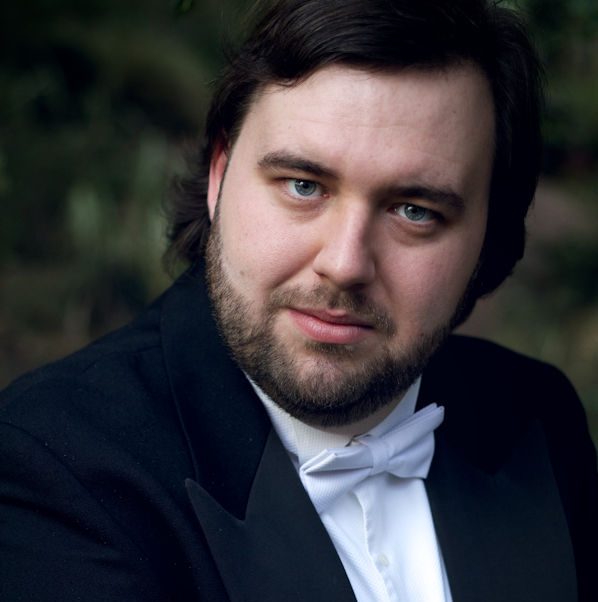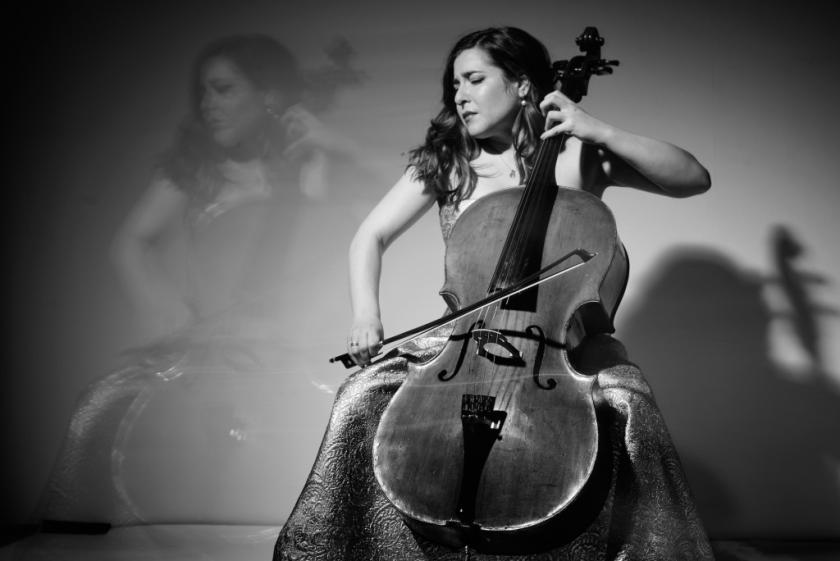Alisa Weilerstein is making two visits to Manchester in just over three weeks. Last night it was with the Hallé, next time she’ll be guesting with the Czech Philharmonic. This one was to play the solo in Shostakovich’s First Cello Concerto, with Sir Mark Elder conducting. She played it here, with him and the Hallé, just over five years ago, and it was her combination of technical brilliance and expressive ability that impressed then and did so again.
It’s a deeply emotional work (written originally for Rostropovich), full of both agonies and challenges, and Weilerstein's qualities combined with Elder’s enthusiasm for Shostakovich produced a very fine result. From the outset she set an example of incisive, energetic articulation, shaping the rhythm of the opening theme with a touch of effective emphasis. Her singing sound in the longer-breathed melodies made a perfect counterpoise, and her echo in many places, principal horn Laurence Rogers, gave a remarkable example of powerful, accurate playing and noble, plaintive tone, while the strings, with Lyn Fletcher back in the leader’s chair, captured passion and mystery.
The solo cadenza, a third movement in its own right in this concerto, began darkly, then launched dramatically into its double-stopped cries of anguish, with intonation pure and sweet in the ultra-high register. She held the audience spellbound as she unfolded the secrets of this intimate confessional – and then dazzled with her skills in the finale. For an encore there was a complete contrast: the serenity of the Sarabande from Bach’s Fourth Cello Suite
 The concert had another soloist too, for Sir Mark, having presided over a "Beyond the Score" evening on Shostakovich’s Fourth Symphony in October, was this time keen to illuminate the path that led to the Fifth, the so-called "Soviet artist’s reply to just criticism". The orchestra, with bass James Platt (pictured right by Maxilmilian Van London), began the concert with the composer’s Four Romances on Poems by Pushkin (originally written with piano accompaniment: three were later orchestrated by Shostakovich himself and the set completed by Gerard McBurney). The connection is an almost unassuming passage for violins and harp, in the first song – which is about an artist and his work surviving attack – which pops up in the finale of the symphony. Platt has a magnificent voice for Russian lyrics, as do the Hallé strings for Russian music, and he and Elder caught the folkish inflexions and the uneasiness and foreboding in these miniatures.
The concert had another soloist too, for Sir Mark, having presided over a "Beyond the Score" evening on Shostakovich’s Fourth Symphony in October, was this time keen to illuminate the path that led to the Fifth, the so-called "Soviet artist’s reply to just criticism". The orchestra, with bass James Platt (pictured right by Maxilmilian Van London), began the concert with the composer’s Four Romances on Poems by Pushkin (originally written with piano accompaniment: three were later orchestrated by Shostakovich himself and the set completed by Gerard McBurney). The connection is an almost unassuming passage for violins and harp, in the first song – which is about an artist and his work surviving attack – which pops up in the finale of the symphony. Platt has a magnificent voice for Russian lyrics, as do the Hallé strings for Russian music, and he and Elder caught the folkish inflexions and the uneasiness and foreboding in these miniatures.
The Fifth Symphony has always been the most popular of the 15, though views vary about the characterisation of the finale’s grinding jubilation. Sir Mark Elder has a very clear view of its structure, loading tragedy into the first movement with measured pace and a keening second theme. The middle section grew near to grotesquerie and militarism, with a powerful crescendo, before magical sounds from principal flute Katherine Baker and principal horn as the transformed second subject whispered its return.
The over-the-top Ländler of the second movement was quite funny in its unadroitness and Lyn Fletcher’s "drunken" violin solos, while the Largo ended with a gentle string ensemble to warm the heart. So what of the finale? “Defiance” is the key, says Sir Mark (as did Kurt Sanderling, who heard the première), and this was achieved by fierce, tension-whipping accelerations in the early part, a heart-stopping change of atmosphere in the middle, and a peroration made as sinister as it could be. Forced jubilation is very different from real joy, and this performance spoke volumes about that.













Add comment